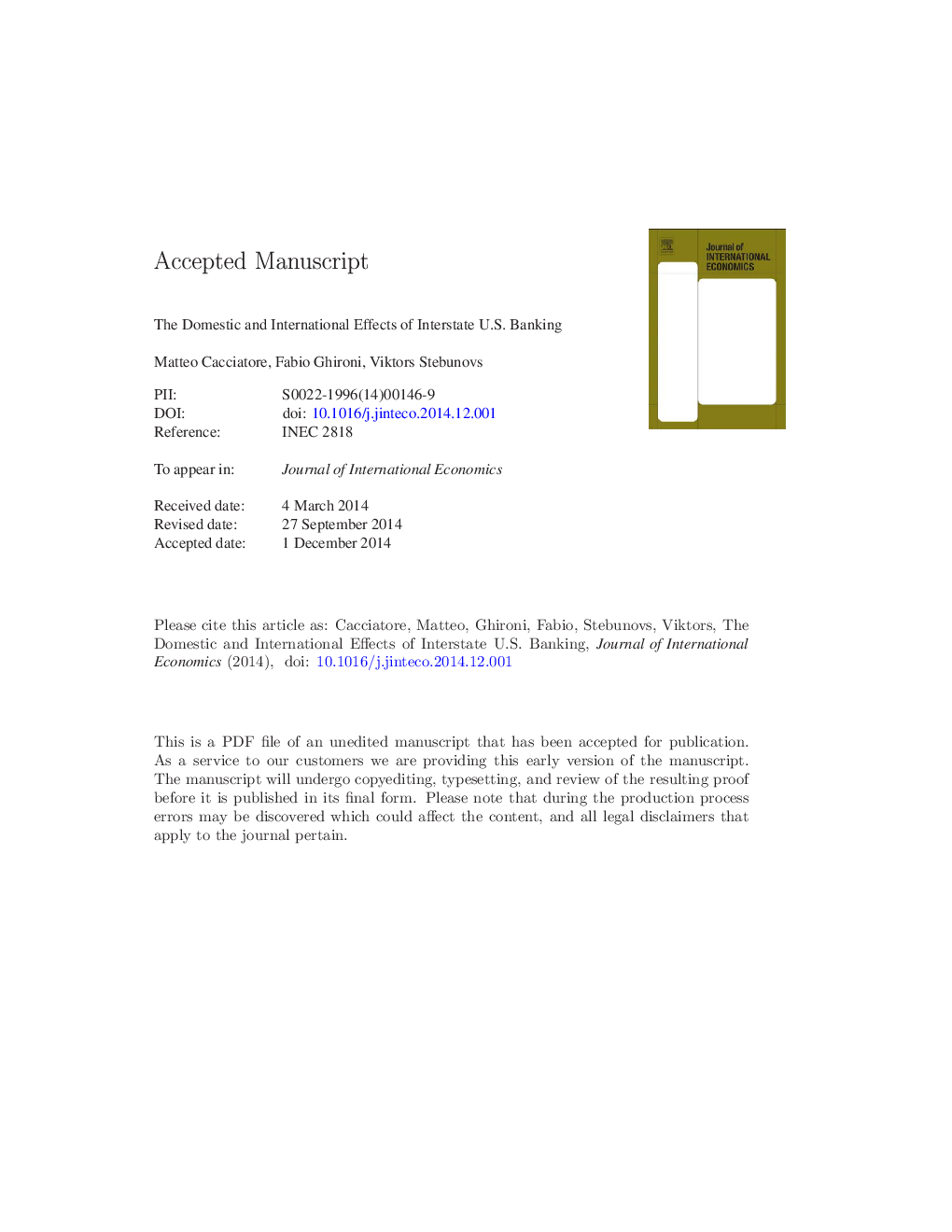| Article ID | Journal | Published Year | Pages | File Type |
|---|---|---|---|---|
| 10477335 | Journal of International Economics | 2015 | 51 Pages |
Abstract
This paper studies the domestic and international effects of national bank market integration in a two-country, dynamic, stochastic, general equilibrium model with endogenous producer entry. Integration of banking across localities reduces the degree of local monopoly power of financial intermediaries. The economy that implements this form of deregulation experiences increased producer entry, real exchange rate appreciation, and a current account deficit. The foreign economy experiences a long-run increase in GDP and consumption. Less monopoly power in financial intermediation results in less volatile business creation, reduced markup countercyclicality, and weaker substitution effects in labor supply in response to productivity shocks. Bank market integration thus contributes to moderation of firm-level and aggregate output volatility. In turn, trade and financial ties allow also the foreign economy to enjoy lower GDP volatility in most scenarios we consider. These results are consistent with features of U.S. and international fluctuations after the United States began its transition to interstate banking in the late 1970s.
Keywords
Related Topics
Social Sciences and Humanities
Economics, Econometrics and Finance
Economics and Econometrics
Authors
Matteo Cacciatore, Fabio Ghironi, Viktors Stebunovs,
